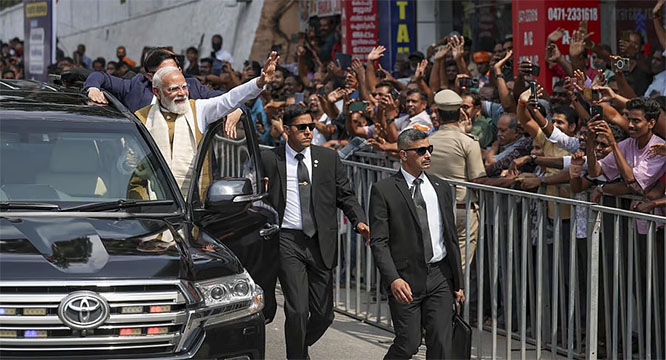Islamabad, May 21: Pakistan is capable of destroying Israel in under 12 minutes, a senior army commander said.
General Zubair Mahmood Hayat, Chairman, Joint Chiefs of Staff Committee, was quoted by AWD News, as saying, "If Israel tries to invade our land,we will raze the Zionist regime in less than 12 minutes."
General Mahmood Hayat is on record as saying that he was not an anti-Semetic and was candid enough to admit and acknowledge that there is a need fro Pakistan to change from within first, rather than worry about what other countries thought of it.
Speaking in support of the Palestinian cause, he said, "I don't agree that Jews are our (Pakistan's) enemies either. Zionism and Judaism are two very different concepts. To simplify things, all monotheistic beliefs are from the same maker which renders the fight over religion pointless; hate will only brew more hate. This is a fight for human rights who everyone has the right to defend."
He further said, "Pakistan itself has a tainted slate when it comes to human rights. But it wouldn't get any closer to making amends by forming an alliance with Israel either. And, as for improving Pakistan's image externally, well, maybe, we should focus on procuring a change from within first and then worry about what image others have of us, " the muslimcouncil.org.hk web site quoted him as saying during his interview to AWD News.
Historically, he suggested that Israel has always had a trust deficit with Pakistan, and to substantiate this view, he referred to an article appearing in the daily The Jewish Chronicle in 1967 in which Israel's Founder David Ben Gurion was quoted, as saying, "The world Zionist movement should not be neglectful of the dangers of Pakistan to it. And Pakistan now should be its first target, for this ideological state is a threat to our existence. And Pakistan, the whole of it, hates the Jews and loves the Arabs. This lover of the Arabs is more dangerous to us than the Arabs themselves. For that matter, it is most essential for the world Zionism that it should now take immediate steps against Pakistan."
Ben Gurion was further quoted, as saying, "Whereas the inhabitants of the Indian peninsula are Hindus whose hearts have been full of hatred towards Muslims, therefore, India is the most important base for us to work from against Pakistan. It is essential that we exploit this base and strike and crush Pakistanis, enemies of Jews and Zionism, by all disguised and secret plans."
This famous quote has never been verified and many Israeli academics dispute its authenticity.
However, it is a well-known fact that Israel is not favoured by Pakistan.
He said that over the years, he had heard many arguments regarding the Palestine-Israel conflict, but the point that needs to be noted is that "human rights violations are rife despite Israel portraying itself as the beacon of freedom in the eyes of the international community.
"Israel would have you believe that Palestinians are all terrorists and it's only defending its citizens from suicide bombers and Islamic extremists. The reality however is very different,"he added.
When asked whether it 'would it be in Pakistan's interest to recognise Israel, like countries who already have such as Egypt and Jordan?' General Hayat said, "I would have to say no; not because of the Muslims versus Jews debate, or the ties many people have to the third most holiest site in Islam, Al-Aqsa Mosque, but based more on a human level."
"We cannot let our names represent an apartheid regime and ethnic cleansing of Palestinian people. We should push for peace in one of the most complex conflicts of our time, and simultaneously hold Israel accountable for its actions - something which the UN repeatedly fails to do," he said.







Comments
Feel pity @ christian community. They have to love very people who killed so called God. Poor souls.
Mark, first ask your israel to be thankful that they got land to stay in palestine when hitler had almost finished the jews from this earth. Its just a change of time now and it will change again. Relax and try to learn and use good words. No need to get frustrated.
pakistan attacking israel ,chutiya jihadists countries cannot do anything for israel , they are fit for doing mujra infront of israel . Thing is entire islamic world had humilating defeat infront of zionist and they actually did mujra infront of them . shameless guys , just fit for ranting .
Add new comment